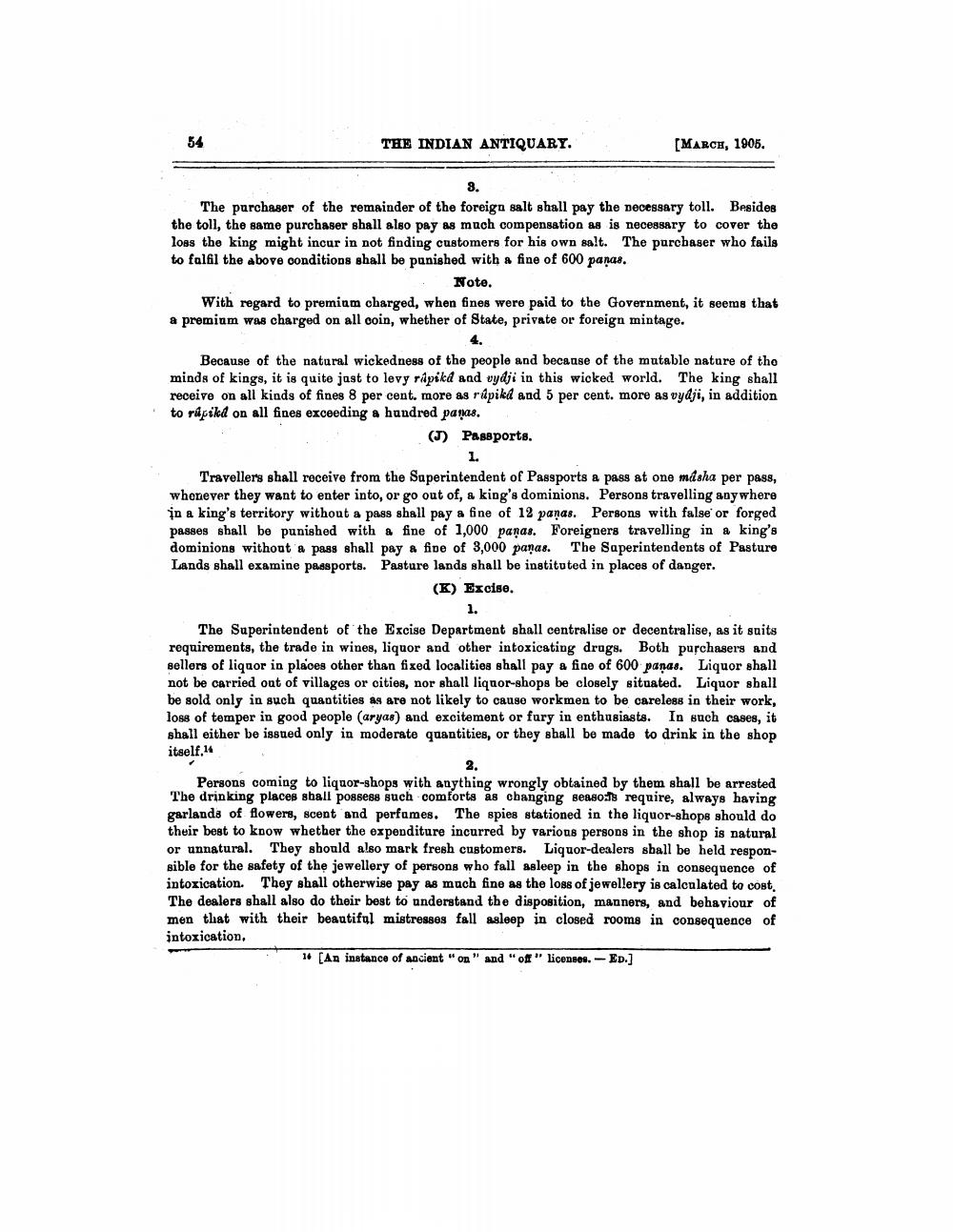________________
54
THE INDIAN ANTIQUARY.
[MARCH, 1905.
The purchaser of the remainder of the foreign salt shall pay the necessary toll. Besides the toll, the same purchaser shall also pay as much compensation as is necessary to cover the loss the king might incur in not finding customers for his own salt. The purchaser who fails to fulfil the above conditions shall be punished with a fine of 600 paņas.
Note. With regard to premium charged, when fines were paid to the Government, it seems that a premium was charged on all coin, whether of State, private or foreign mintage.
Because of the natural wickedness of the people and becaase of the mutable nature of the minds of kings, it is quite jast to levy rápikd and vydji in this wicked world. The king shall receive on all kinds of fines 8 per cent. more as rúpikd and 5 per cent. more as vydji, in addition to rápikd on all fines exceeding a hundred paņas.
(1) Passports.
1. Travellers shall receive from the Superintendent of Passports a pass at one mesha per pass, whenever they want to enter into, or go out of a king's dominions. Persons travelling anywhere in a king's territory without a pass shall pay a fine of 12 panas. Persons with false or forged passes shall be punished with a fine of 1,000 panas. Foreigners travelling in a king's dominions without a pass shall pay & fipe of 3,000 panas. The Saperintendents of Pasture Lands shall examine passports. Pasture lands shall be instituted in places of danger.
(K) Excise.
The Superintendent of the Excise Department shall centralise or decentralise, as it suits requirements, the trade in wines, liquor and other intoxicating drugs. Both purchasers and sellers of liquor in places other than fixed localities shall pay a fine of 600 panas. Liquor shall not be carried out of villages or cities, nor shall liquor-shops be closely situated. Liquor sball be sold only in such quantities as are not likely to cause workmen to be careless in their work, loss of temper in good people (aryas) and excitement or fury in enthusiasts. In such cases, it shall either be issued only in moderate quantities, or they shall be made to drink in the shop itself.14
Persons coming to liquor-shops with anything wrongly obtained by them shall be arrested The drinking places shall po88e88 such comforts as changing seaso:18 require, always having garlands of flowers, scent and perfumes. The spies stationed in the liquor-shops should do their best to know whether the expenditure incurred by various persons in the shop is natural or unnatural. They should also mark fresh customers. Liquor-dealers shall be held responsible for the safety of the jewellery of persons who fall asleep in the shops in consequence of intoxication. They shall otherwise pay as much fine as the loss of jewellery is calculated to cost. The dealers shall also do their best to understand the disposition, manners, and behaviour of men that with their beautifal mistresses fall asleep in closed rooms in consequence of intoxication.
1. [An instance of ancient "on" and "off" licenses. -ED.]




